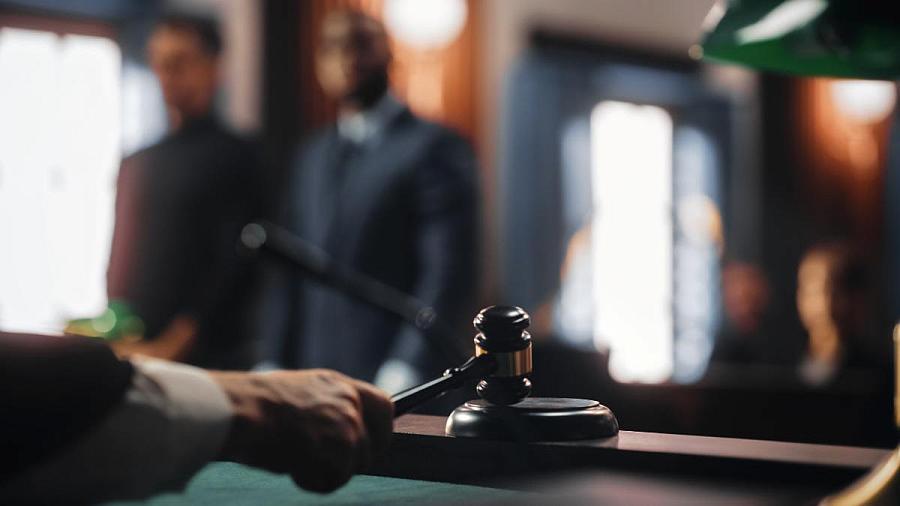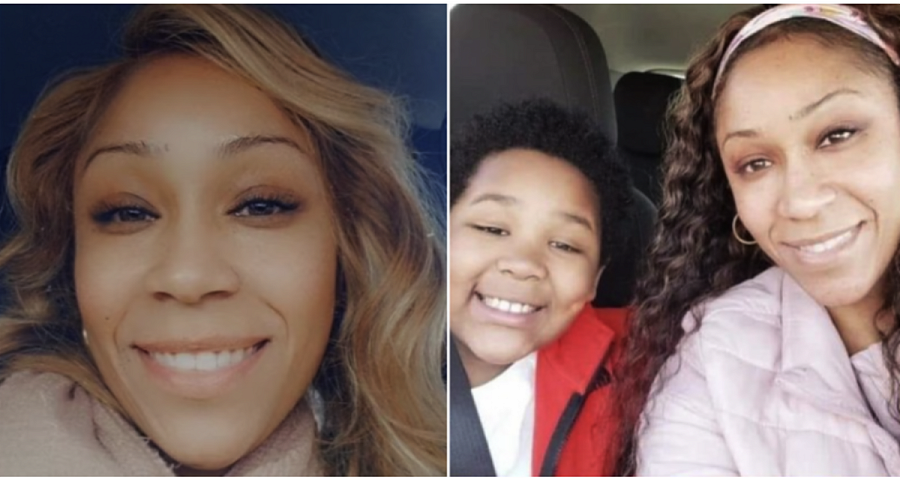The Health Divide: Black youth are disproportionately sent to adult court

(Photo via Getty Images)
In April, I wrote a column for the Center for Health Journalism about a boy who, at the age of 10, was accused of shooting and killing his mother in Milwaukee in November 2022.
Initially, the boy was charged as an adult, while the boy’s lawyers and child advocates from across the nation pushed for the first-degree intentional homicide charge to be transferred to the juvenile justice system.
In November — two years after the tragedy claimed the life of the mother of four — a judge ruled the case would remain in adult court. The decision means that if convicted, the boy, now 12, could face a life sentence for actions he committed when he was in fourth grade.
The boy, who is Black, will be one of Wisconsin’s youngest kids ever charged as an adult for murder.
In 2021, a total of 265,000 children were arrested in the United States, according to the Children’s Defense Fund, a nonprofit child advocacy organization. Notably, one-third of those detained were Black children, even though they constitute only 15% of the overall youth population. Moreover, Black youth account for more than 47% of those transferred to adult court by juvenile court judges.
There is a significant difference between adult court and children’s court. Adult court focuses on punishment, while children’s court focuses on rehabilitation. Children charged with first-degree intentional homicide in adult court face a minimum of 20 years in custody, and a lifetime of community supervision. The same charge in children’s court requires at least one year in custody, with community supervision until they turn 25.
In Wisconsin, children as young as 10 can be charged as adults. Wisconsin, along with Georgia and Texas, sets the juvenile/adult boundary at age 16. A July 2020 report from the National Conference of State Legislatures reports that in 47 states, the maximum age for juvenile court jurisdiction is 17.
Despite substantial decreases in juvenile arrest rates in recent years and the overall number of young people being sent to adult courts, jails, and prisons, juvenile court judges are transferring Black youth to adult courts at some of the highest rates seen in the past 30 years of data collection, according to the National Association of Social Workers.
The issue of how young people are punished for their crimes is a subject of intense debate. But the inequities are unmistakable. Compared to white youth — Black children, and particularly Black boys — are disproportionately tried in adult court and sentenced to adult prisons, where they are housed with some of the nation’s most violent prisoners.
Child advocates argue that individuals as young as 10, 12, or even 15 years old should never be sentenced in adult court, where the penalties issued are much harsher, and can result in young offenders being placed with hardened men who could take advantage of them.
At 12, Noah faces 60 years behind bars
When I first mentioned the 10-year-old boy from Milwaukee, I called him "Ken" because a court order prohibited the media from revealing his identity or showing his face.
Had child advocates succeeded in getting his case transferred to juvenile court, “Ken” would have the opportunity for treatment and potentially be released before turning 21. The judge’s ruling just before Thanksgiving crushed those hopes.
Now, “Ken,” whose real name is Noah Mann-Tate, a seventh grader, could face 60 years behind bars if convicted on the charge of first-degree reckless homicide for shooting and killing his mother, Quiana Mann, in November 2022, inside their home on the north side of Milwaukee.
Noah initially told police he was twirling a gun around his finger when it accidentally fired, striking Mann in the head. The police did not jail Noah the night of the shooting. Instead, they allowed him to stay with relatives.
A day after the shooting, Noah’s family contacted the police with their concerns.
They said Noah made inconsistent statements about the shooting, showed no remorse for his actions, physically attacked his 7-year-old cousin, and went online and purchased a virtual reality headset using his mother’s credit card.

Noah Mann-Tate, now 12, with his mother, Quiana Mann. When Noah was 10, he was accused of shooting and killing his mother in November 2022. A judge ruled recently that his case will remain in adult court.
(Images via Twitter)
When police interviewed Noah, he stated that the night before the shooting, he argued with his mother. Later that night, he took her handgun and hid it in his nightstand. The following morning, while Mann was doing the laundry, he aimed the gun at her head and pulled the trigger because she had refused to buy him a virtual reality headset.
Noah's family believes he’s disconnected from reality and has mental health and anger issues. His aunt said he started therapy a year ago and talked to imaginary people. Another relative said he abused a puppy when he was 4.
Months before the shooting, Noah's relatives reported that he had filled a balloon with a flammable liquid and attempted to set the living room on fire. Despite these concerns, the state psychologist who evaluated Noah concluded that, although he exhibited mild anxiety and some psychotic symptoms, he was otherwise psychologically stable enough for adult court. While the psychologist deemed Noah mentally stable, his attorneys, along with child welfare experts from across the country, argue that he should not face life in prison for actions he committed before reaching puberty. Noah's attorneys argued that evidence regarding their client's mental state, which could have moved the case to juvenile court, was not considered.
They also contend that the legal process fails to consider the overwhelming scientific evidence regarding a child’s brain development, mental health, and the unique rehabilitative needs of youth. Young brains are still developing and may not fully grasp the consequences of their actions. In fact, scientists say the brain doesn’t reach full maturity until a person reaches their mid-20s.
Noah's lawyers, Angela Cunningham and Tanner Kilander, argued that trying his case in adult court would subject him to a justice system focused on punishment rather than rehabilitation. They also contended that this decision perpetuates the harmful and racist stereotype of Black youth as “super-predators.” The term was coined in 1995 by Princeton professor John Dilulio, who predicted that a wave of teenagers driven by "moral poverty" would drive a massive wave of violent crime.
Five years later, Dilulio renounced the super-predator theory and apologized for its unintended consequences.
In another case, two 12-year-old white girls nearly stabbed their classmate to death
Wisconsin had another notable case involving pre-teens.
On May 31, 2014, two 12-year-old Waukesha girls were charged with attempted first-degree intentional homicide for what police say was a plot to kill their classmate to appease a fictitious character, the Slender Man.
Morgan Geyser and Anissa Weier, two girls, stabbed Payton Leutner 19 times with a kitchen knife and left her for dead in the woods. After the attack, Payton crawled to a trail, where a passing bicyclist eventually discovered her. She survived the ordeal.

Morgan Geyser, (left) and Anissa Weier, then 12, were charged as adults in 2014 with attempted first-degree intentional homicide in Waukesha County after nearly stabbing a classmate to death.
(Photos courtesy Milwaukee Journal Sentinel)
Both Geyser and Weier are white and were tried as adults.
In August 2017, Weier pleaded guilty to second-degree attempted homicide as a party to a crime with the use of a deadly weapon. A jury ruled that she had a mental illness at the time of the incident and found her not guilty because of a mental disease or defect. She was sentenced to a maximum of 25 years in a psychiatric facility but was released from a mental institute in September 2021. She lives with her father and isn’t permitted to use the internet.
Geyser's attorneys argued that she had schizophrenia. She pleaded guilty in October 2017 and was committed to a mental hospital. She has petitioned for early release twice, but her requests were denied.
In October 2019, the victim, Leutner, told ABC’s David Muir that she sleeps with a pair of broken scissors under the pillow next to her out of fear.
While Noah’s attorneys would not say if race played a role in the Slender Man sentencing, they did challenge the constitutionality of Wisconsin’s reverse waiver statutes, which were enacted in the mid-1990s amid the racist “super-predator” myth.
Nationwide, adultification statutes disproportionately impact Black and brown youth, and this decision denying our client’s reverse waiver does nothing to revere that trend, his attorneys said.
Noah is likely facing a very different future. When he appeared in court, he seemed unaware of what was happening. While lawyers debated whether to transfer him to juvenile court and discussed his mental state at the time of the incident, Noah occupied himself by playing with his fingers and mostly kept his gaze down.
Noah's attorneys argue that he is not an adult, regardless of what the District Attorney’s office says.
The Milwaukee District Attorney’s Office has the power to reverse course — to agree to prosecute this case in juvenile court, where it belongs — and yet they’ve refused, ignoring decades of research on childhood brain development, his attorneys said.
“In Wisconsin and across the nation, this harsh treatment disproportionately targets Black youth. These decisions strip children of access to the juvenile justice system, a space intended to nurture growth, learning, and rehabilitation,” Noah’s attorneys said in a statement.
According to the Juvenile Law Center, youth who are tried as adults face a higher risk of sexual abuse, physical assault, and suicide. Children who are sentenced as adults are also usually denied access to essential programs and any special educational services and mental health treatment they may need.
On a broader level, education plays a critical role in reducing youth recidivism rates.
According to the Juvenile Law Center, when young offenders are denied access to adequate and suitable educational opportunities, their chances of successfully reintegrating into their communities are significantly diminished. This lack of education can hinder their ability to develop essential skills, build confidence, and secure employment, which are vital for getting back on their feet after release.
But journalists must consider this question in their reporting: How young is too young for a child to be charged as an adult?
Currently, the guidelines vary depending on where you live. Eleven states have no minimum age for trying children as adults, and some allow children as young as 10, 12, or 13 to be sentenced as adults.
How do journalists cover the heinousness of such crimes while being sensitive to the fact we are covering children? There have been instances of children as young as eight being prosecuted as adults, which appears to be deeply unjust. Notably, half of the children under 14 who are transferred to adult court each year are Black or Latino, according to the NASW.
While no one condones Noah's actions on the night he tragically took his mother's life at the age of 10, it's also important to remember that he was just a child. Our justice system struggles to keep both of those facts in mind simultaneously.

